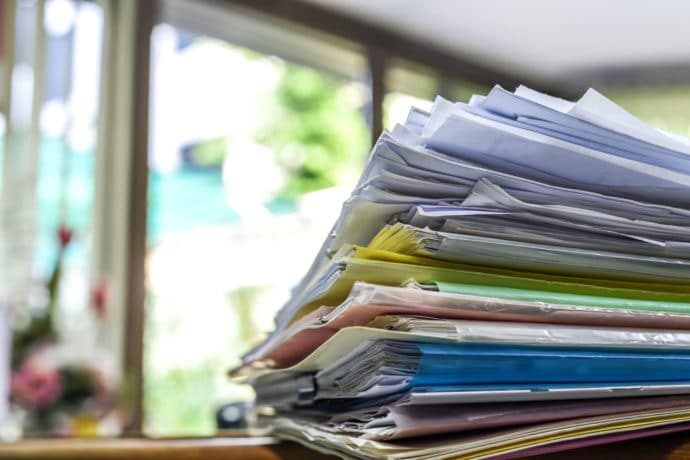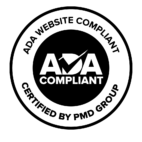Paper has a way of piling up in various corners of our homes no matter how much we try to sort and organize it.
You get the mail, come inside and sort it into three piles (well, maybe): toss, keep and needs review. The toss pile *may* get thrown out that day if a trash or recycling can is nearby and you have time to shred or cover any personal info. The keep pile will likely join a larger “to file” pile sitting near your filing cabinet and the needs review file could stay right where it is for weeks before you finally have time to look at it. Then, there is the constant inflow of MORE paper every time the mailman comes. Coupons, catalogs, bills, medical and insurance records, credit card statements and so much more all must be sorted through to determine what should be kept and what can be tossed.
So, should you go paperless? Here are some tips and tricks for successfully going paperless at home.
Don’t Get Frustrated. Transitioning to a paperless house takes time, patience and commitment. Don’t get frustrated when it takes more than a fair amount of effort. Not only do you have to clean out all the existing paper but limiting the influx of new paper into the home also takes some time.
Sign Up for E-Statements and Auto Pay. Enroll in electronic bills and statements instead of receiving paper versions. Financial institutions, utilities, credit cards and cable/internet companies all offer e-statements. Take it a step further and enroll in AutoPay (if you haven’t already) so you don’t have to worry about missing a payment because you didn’t have the physical copy sitting in your kitchen to remind you.
Pay Online. Pay any bills online that you can. Eastex offers BillPay through our online banking which allows you to pay your utilities, cable/internet, cell phone and many others online or you can usually pay directly on the company website, as well. Online payments usually result in an emailed payment confirmation which acts as your receipt. Save these in a folder in your inbox for future reference.
Opt Out of Junk Mail Lists. One of the easy ways to reduce the amount of paper coming into your home is by opting out of junk mail and catalog lists. There are many different online businesses that offer this service including DMAChoice and DirectMail. Specifically, opt out of prescreens at OptOutPrescreen. If you have previously elected to receive mail from a company, though, you will need to contact them directly to remove yourself from their mailing list.
Purge and Recycle. Once you’ve minimized the amount of mail regularly coming into your home, it’s time to start ridding your home of the paper clutter. Take one pile at a time and save only the documents that you must keep (bills, tax records, account info, etc) or items you need to make a decision on (like that quote on house washing). Mark a time on your calendar to make those decisions.
Keep What You Must. Some documents need only be kept for a month or two (utility bills, deposit slips) while others you should hold on to forever (tax returns, wills, major receipts and warranty/insurance information). This list by Dave Ramsey simply breaks down what documents should be kept and for how long.
Digitalize Documents- For the documents you must keep, you can digitize them. Scan them onto your computer and store in an external hard drive with carefully titled files and folders.
Click here for more information on enrolling in e-statements from Eastex Credit Union.




